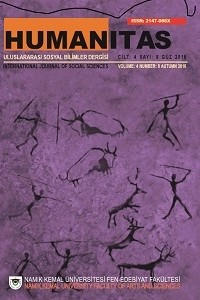A NARRATIVE OF CONTROVERSY: ORHAN PAMUK’S SNOW
A NARRATIVE OF CONTROVERSY: ORHAN PAMUK’S SNOW
Author(s): M. Önder GöncüoğluSubject(s): Turkish Literature, Theory of Literature
Published by: Namık Kemal Üniversitesi Fen-Edebiyat Fakültesi
Keywords: Orhan Pamuk; Snow; Controversy; Politics; Polyphony; Tension;
Summary/Abstract: Nobel Prize laureate Orhan Pamuk’s novel Snow (2002), which local scholars argue that it takes its name from ‘karsu’ (snow-water), takes place in Kars, a city located on the north-eastern border of Turkey. As a borderline city, it stands as the nexus of distinguished civilisations, such as that of Armenians, Russians, and Ottomans; and bears the traces of several ethnic, cultural, and political characteristics of diverse identities. Snow represents modernist Turkey’s political, cultural, and religious turmoil experienced in the late twentieth century. The novel depicts the city of Kars as a witness to deep-seated conflicting political views and social values. The concepts of secularism, nationalism, and the Islamic Revival, including experiences of poverty that have been felt, unemployment, and suicide are all inscribed within the plot of this provocative novel. Hence, depicted concepts and felt experiences stir up much controversy among critics who explore Pamuk’s intention to understand the reasons why he might have thematised such problematic issues. However, Pamuk’s elaboration of a political issue in Snow seems to have been misconceived through political standpoints minimizing his artistic ability to solely a political gaze. In this respect, I will explore and discuss Pamuk’s Snow as a polyphonic novel inviting its readers to contemplate both the question of ‘the other’ and the dangers of radicalism rather than as a novel supporting a certain political group.
Journal: Humanitas - Uluslararası Sosyal Bilimler Dergisi
- Issue Year: 6/2018
- Issue No: 11
- Page Range: 53-70
- Page Count: 18
- Language: English

